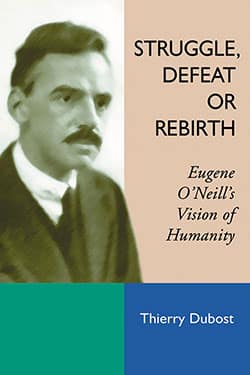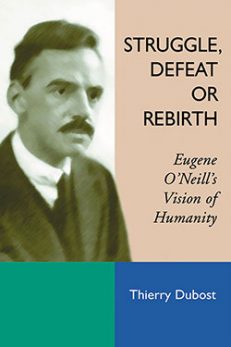Struggle, Defeat or Rebirth
Eugene O’Neill’s Vision of Humanity
$39.95
In stock
About the Book
To Eugene O’Neill, the links between man and his surroundings were of prime importance. His characters struggled with existential problems, and how they related to them reveals much about O’Neill’s own humanity. For the most part, the characters defeat their problems and in doing so are “reborn” in some manner.
This work examines the 49 plays that O’Neill completed, focusing on his attempt to find an inner truth in his characters. Part One explores the family, showing how a person is trapped by heredity, space, time and communal hierarchy. Part Two deals with the individual and society, showing how societal conventions confined the characters. In Part Three, personal freedom is the centerpiece, showing how the characters develop a specific approach to life that leads to a coherent vision of the characters’ relationships with the world around them.
About the Author(s)
Bibliographic Details
Thierry Dubost
Format: softcover (6 x 9)
Pages: 293
Bibliographic Info: references, bibliography, index
Copyright Date: 2005 [1997]
pISBN: 978-0-7864-2419-1
Imprint: McFarland
Table of Contents
Acknowledgments xi
List of Abbreviations xiii
Introduction 1
PART I: THE FAMILY
1. The Family and Its Environment 7
2. The Imprisoned Person 19
3. Relations Between the Characters 33
4. From the Microcosm to the Macrocosm 66
5. The Image of the Family 72
6. Conclusion 76
PART II: HUMANITY AND WORLDS
7. Worlds and the Representation of Them 81
8. The Place of the Human Being in the World 93
9. Belonging 110
10. Non-Belonging 117
11. Conclusion 135
PART III: HUMANS FACED WITH THEMSELVES AND INNER WORLDS
12. The Discovery of Human Beings 139
13. Revelation of an Existential Condition 152
14. The Acknowledgment of the Individual 162
15. Nature 199
16. Conclusion 221
17. Beyond the Conclusions 226
Notes and References 231
Chronological List of the Plays 259
List of “Family Plays” 261
Bibliography 263
Index 271
Book Reviews & Awards
“highly detailed…an exhaustive study”—Choice; “based on an examination of 49 of O’Neill’s plays and a substantial number of scholarly works as well”—Theatre Research International; “Dubost returns us to O’Neillian drama with renewed pleasure”—The Eugene O’Neill Review.






